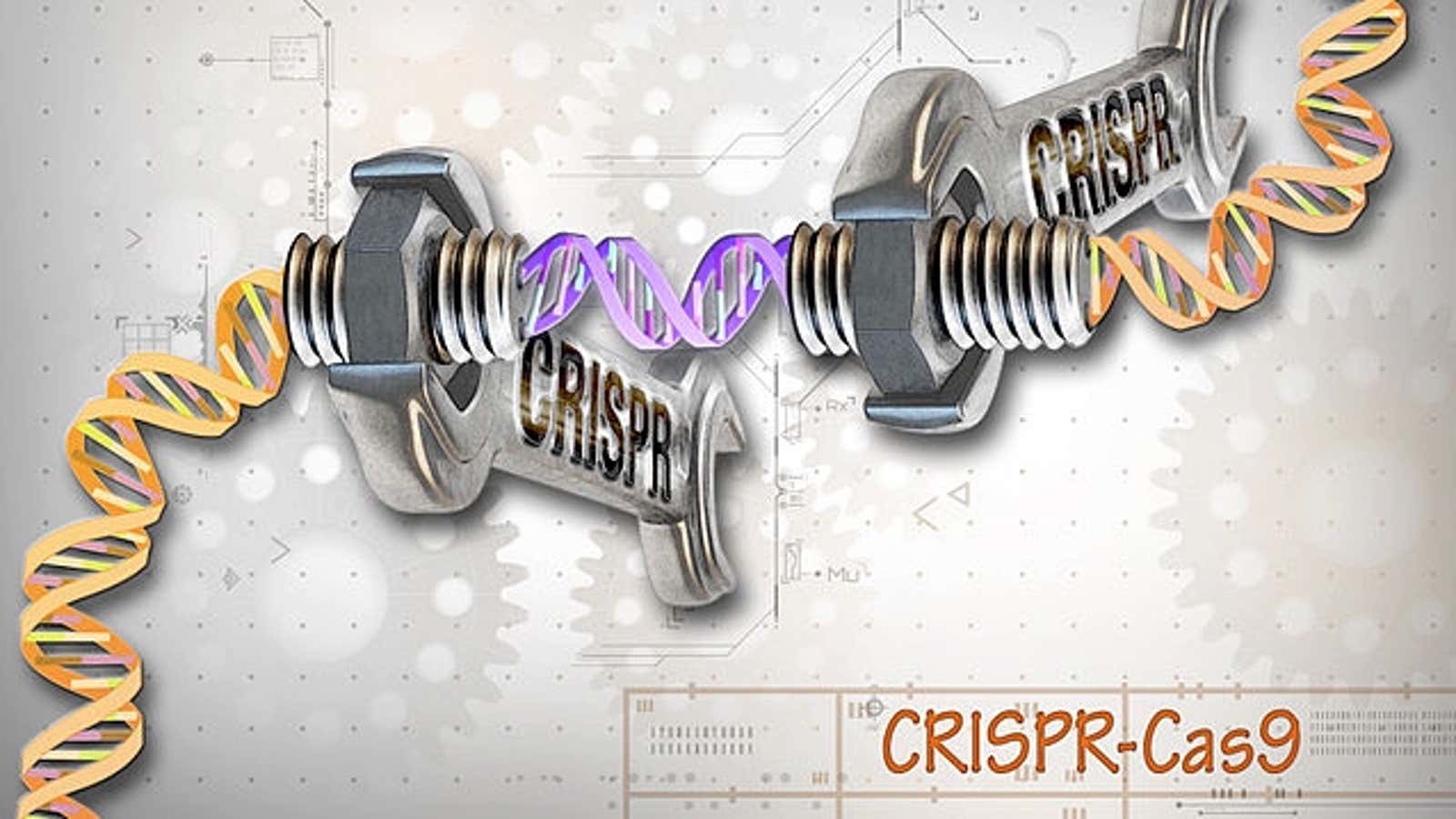The US Patent and Trademark Office has called a winner in the intellectual property battle between east coast and west coast academics at three of the nation’s most prestigious institutions of higher learning.
After nearly four years of wrangling over the gene-editing technology known as CRISPR-Cas9, the patent office denied University of California-Berkeley’s challenge of a provisional patent granted in 2013 to the Broad Institute, associated with Harvard University and the Massachusetts Institute of Technology.
CRISPR allows scientists to cut and insert small pieces of genetic code at precise areas along a DNA strand. The intellectual property rights to the technology—as applied to genetic editing in humans, animals, and plants—are potentially worth billions of dollars. Bio-technologists call CRISPR “the disruptor,” a major advance that will change the future of genetic science research because it’s much easier to use than other gene-editing tools.
In the US, whenever a patent application is submitted, a patent office examiner reviews it and decides whether or not to grant it a provisional patent. If a provisional patent is approved, a notice is published in the Federal Register alerting other inventors, giving them the opportunity to make the case that the new invention infringes on their intellectual property and a patent shouldn’t be granted.
After the Broad Institute was given a provisional patent for CRISPR-Cas9 for gene editing in plant, animal, and human cells in 2013, Berkeley put forth a challenge. It argued that it invented the CRISPR system and that Broad’s technology was a mere refinement relying on ideas which its researchers had published in 2012 and had also sought to patent in 2013. In their 2012 paper, a Berkeley research team led by Jennifer Doudna described a simple gene-editing system for precisely cutting DNA in a test tube, and they argued that gene editing within living cells—the invention that the Broad Institute was seeking to patent—was the obvious next step.
In January of 2013, Feng Zhang, a Broad Institute researcher, published a paper that took this step, and showed how to adapt the approach to work inside of plant, animal, and human cells, rather than a test tube.
Berkeley contends it should own the IP rights to CRISPR because it invented the system; Broad argued that its work refining CRISPR was the critical invention worthy of the lucrative patent for gene editing within the cells of plants, humans, and animals.
Today, Feb. 15, the patent office ruled that the parties’ inventions don’t overlap, arguing that the step from test tube to living cells wasn’t obvious, as Berkeley contends, and that the Broad Institute did in fact independently invent a patentable work.
Still, as MIT Technology Review reports, the fight over the IP rights to this lucrative tool isn’t over. All that was decided was one Berkeley claim on a single CRISPR-Cas9-related patent. But Broad has filed multiple patents for a number of associated applications, and Berkeley could still challenge those. Plus, there are other CRISPR-related challenges that have been filed by other organizations and people now winding their way through the US patent process. And for each CRISPR-associated patent that Broad files, there will likely be more conflicts.
